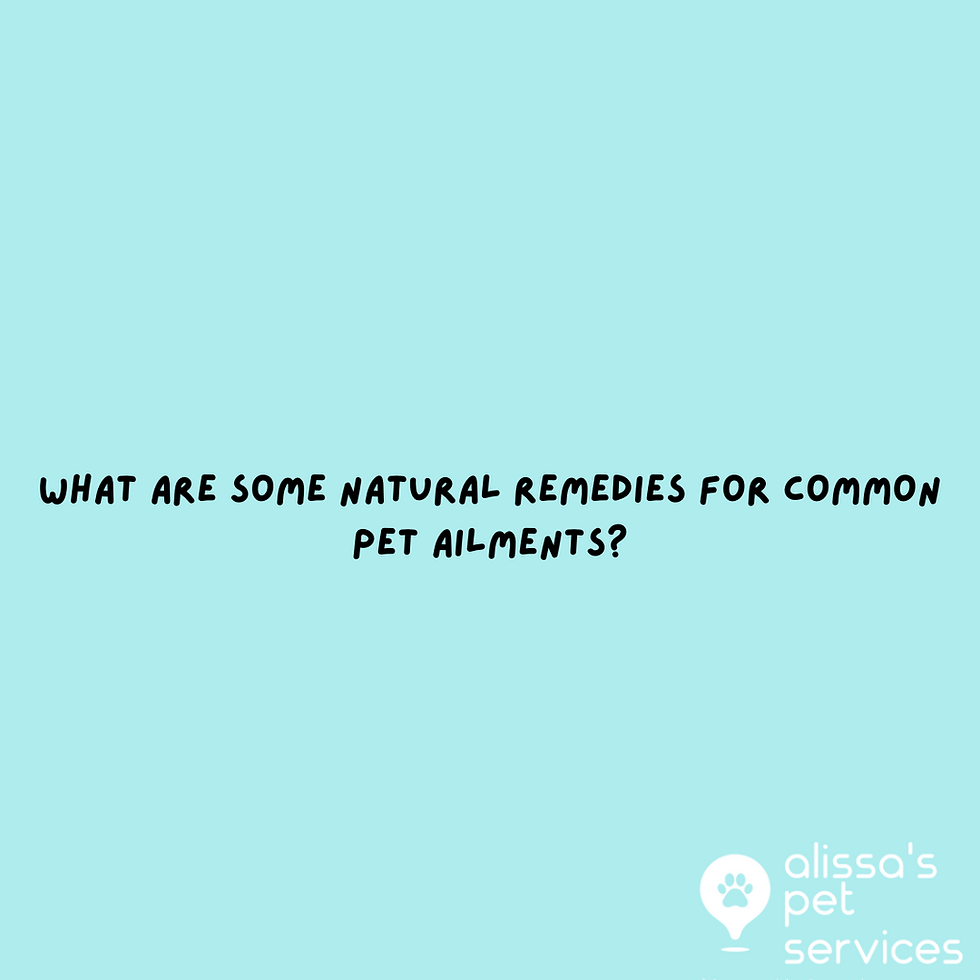The Dos and Don'ts of Feeding Your Pet: Nutrition Tips for a Healthy Diet
- Alissa' Pet Services

- Apr 30, 2024
- 3 min read

Proper nutrition and diet is essential for the health and well-being of your pet(s). As pet owners, it's our responsibility to ensure that our fur babies receive a balanced diet that meets their nutritional needs. In this blog post, we'll explore the dos and don'ts of feeding your pet, along with valuable nutrition tips to promote a healthy diet.
Dos:
1. Choose High-Quality Food: Select a high-quality pet food that is specifically formulated for your pet's species, age, size, and health status. Look for brands that use natural, whole-food ingredients and meet the nutritional standards set by organizations like the Association of American Feed Control Officials (AAFCO).
2. Provide Balanced Nutrition: Ensure that your pet's diet includes a balance of protein, carbohydrates, fats, vitamins, and minerals to support their overall health and well-being. Consult with your veterinarian to determine the appropriate nutrient requirements for your pet based on factors such as age, activity level, and medical history.
3. Monitor Portion Sizes: Pay attention to portion sizes and avoid overfeeding your pet, which can lead to obesity and related health problems. Follow the feeding guidelines provided by the pet food manufacturer or consult with your veterinarian for personalized recommendations based on your pet's individual needs.
4. Offer Fresh Water: Always provide access to fresh, clean water for your pet to drink throughout the day. Hydration is essential for maintaining proper bodily functions and preventing dehydration, especially in hot weather or during periods of increased activity.
5. Consider Dietary Supplements: In some cases, dietary supplements such as omega-3 fatty acids, probiotics, or joint support supplements may be beneficial for your pet's health. Consult with your veterinarian before introducing any supplements into your pet's diet to ensure they are safe and appropriate.
Don'ts:
1. Avoid Table Scraps: Refrain from feeding your pet table scraps or human foods, as they can be high in fat, salt, and other ingredients that are harmful to pets. Certain foods, such as chocolate, grapes, onions, and garlic, can be toxic to animals and should be strictly avoided.
2. Limit Treats: While treats can be a fun way to reward your pet or provide enrichment, it's essential to limit their intake to prevent overindulgence and weight gain. Choose healthy, low-calorie treats made from natural ingredients and incorporate them into your pet's diet in moderation.
3. Don't Switch Foods Abruptly: Avoid making sudden changes to your pet's diet, as this can disrupt their digestive system and lead to gastrointestinal upset. Gradually transition to a new food over the course of several days by mixing increasing amounts of the new food with decreasing amounts of the old food.
4. Don't Free-Feed: Resist the temptation to free-feed your pet by leaving food out continuously throughout the day. This can lead to overeating and obesity, as well as make it difficult to monitor your pet's food intake. Instead, establish regular feeding times and portion-controlled meals to help maintain a healthy weight.
5. Steer Clear of Unapproved Supplements: Avoid giving your pet dietary supplements or medications without consulting with your veterinarian first. Some supplements may interact with medications or underlying health conditions, so it's essential to seek professional guidance before introducing them into your pet's diet.
By using these dos and don'ts of feeding your pet as a guide, you can help ensure that they receive a nutritious and balanced diet that supports their overall health and well-being. Remember, proper nutrition is key to a happy and healthy life for your furry friend.



Kabar4d tempat paling asik buat main slot online. https://store.finepickstea.com